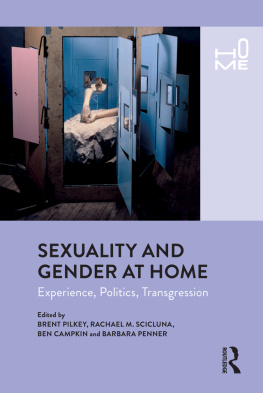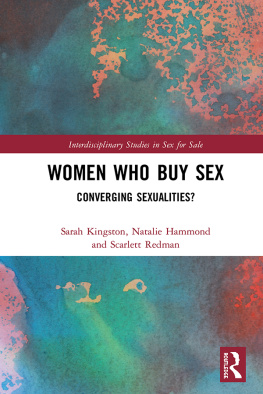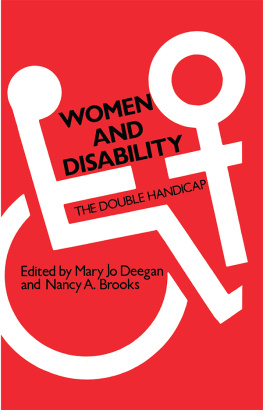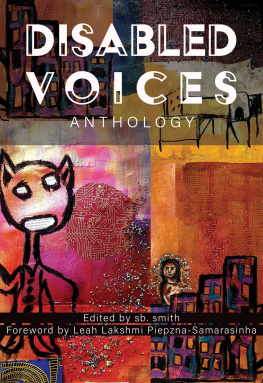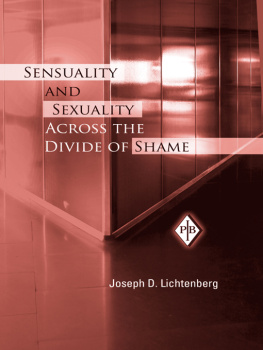
Disability and Sexuality in Zimbabwe
Disabled women represent one of the most marginalised minority groups in the world, hence they are largely silent while their sexuality is ignored, suppressed, forbidden and buried under the carpet. Until recently, most of the Global Northern published literature on the subject of the sexuality of disabled women has predominantly been constructed from hearsay and second-hand narratives in studies that draw from the perspectives of parents, service providers and advocates, without much consultation of the relevant women. By facilitating the voice of disabled women in Zimbabwe and illuminating their experiences of sexuality, this book hopes to shift the experiences of sexuality of disabled women from the periphery of society to the fore.
Disability and Sexuality in Zimbabwe presents original research on an issue that is thus far not found in local research data. Whilst addressing the paucity of literature on the subject, the book informs policy and practice and enhances the existing body of knowledge by making recommendations about the development of a disability and sexuality framework that is rooted in the African context. This book is of interest to students and scholars of African studies, disability studies, sociology, psychology, social work, nursing, education studies, geography, womens and gender studies and interdisciplinary studies. Additional audiences include a wide range of health, social care, and educational professionals and practitioners, as well as donors, disabled peoples organisations, charities, government departments, NGOs, supranational organisations and policy makers.
Christine Peta is a development and public health care practitioner whose academic credentials include BSc/Masters Degrees and a PhD in Disability Studies. She has worked for international development organisations that include the United Nations Educational Scientific and Cultural Organization (UNESCO) and the W.K. Kellogg Foundation.
Routledge Studies on Gender and Sexuality in Africa
The Tunisian Womens Rights Movement
From Nascent Activism to Influential Power-broking
Jane D. Tchaicha and Khdija Arfaoui
Disability and Sexuality in Zimbabwe
Voices from the Periphery
Christine Peta
Love, Sex and Teenage Sexual Cultures in South Africa
16 Turning 17
Deevia Bhana
Disability and Sexuality in Zimbabwe
Voices from the Periphery
Christine Peta
First published 2018
by Routledge
2 Park Square, Milton Park, Abingdon, Oxon OX14 4RN
and by Routledge
711 Third Avenue, New York, NY 10017
Routledge is an imprint of the Taylor & Francis Group, an informa business
2018 Christine Peta
The right of Christine Peta to be identified as author of this work has been asserted by her in accordance with sections 77 and 78 of the Copyright, Designs and Patents Act 1988.
All rights reserved. No part of this book may be reprinted or reproduced or utilised in any form or by any electronic, mechanical, or other means, now known or hereafter invented, including photocopying and recording, or in any information storage or retrieval system, without permission in writing from the publishers.
Trademark notice: Product or corporate names may be trademarks or registered trademarks, and are used only for identification and explanation without intent to infringe.
British Library Cataloguing in Publication Data
A catalogue record for this book is available from the British Library
Library of Congress Cataloging in Publication Data
Names: Peta, Christine, author.
Title: Disability and sexuality in Zimbabwe : voices from the periphery / Christine Peta.
Other titles: Routledge studies on gender and sexuality in Africa ; 2. Description: New York : Routledge, 2017. | Series: Routledge studies on gender and sexuality in Africa ; 2 | Includes bibliographical references and index.
Identifiers: LCCN 2017024914| ISBN 9781138061637 (hardback) | ISBN 9781315162218 (ebook)
Subjects: LCSH: Women with disabilitiesSexual behaviorZimbabwe. | Women with disabilitiesZimbabweSocial conditions. | SexZimbabwe. Classification: LCC HQ30.5 .P46 2017 | DDC 305.908082096891dc23
LC record available at https://lccn.loc.gov/2017024914
ISBN: 978-1-138-06163-7 (hbk)
ISBN: 978-1-315-16221-8 (ebk)
Typeset in Galliard
by Wearset Ltd, Boldon, Tyne and Wear
I dedicate this book to my mother Ronica, who taught me the value of resilience and hard work, and to all women with disabilities, who allowed me to enter their private lives through their participation in the narrative study which led to the writing of this book.
Contents
Figures
Tables
Preface
The beginning of a book that arises from a narrative study deserves the telling of a story from its beginning (Trahar, 2006). I therefore start by telling my story as the author of this book in this Preface. I have experienced disability both as a child and as an adult through living with disabled family members and working with people with disabilities later in my life. I was raised in a big family with parents who were always ready to welcome into our small home both disabled and non-disabled members of our extended family, in spite of our meagre resources: my father, a then devoted clothing factory tailor, and my mother, a hardworking innovative housewife who equally ran our rural and urban homes to the utmost of her ability. Having known poverty at a tender age, a basic education and employment helped me escape my underprivileged status in the mid-years of my early adult life. My later employment in the international development sector earned me some travel to parts of the USA, Europe and other countries in Southern Africa, thereby opening doors of exposure and opportunity for me.
In a Zimbabwean context, where poverty and prosperity are intimately related, my newly acquired social standing served to fulfil the Shona proverb kugarike tange nhamo (success comes after poverty). However, on reflection, I realise that my shift to a middle class socio-economic position has not obliterated the physical, cognitive, sexual and social prints of poverty, an identity-marker that forms a primary part of my origin. My personal epistemologies arise from such experiences and are further strengthened and moulded by my transformation in this world, albeit with my allegiances that remain grounded in such an identity. My heart therefore lies with facilitating the voice of those who live in the zone of my roots: the zone of invisibility, silence and the margins.
In the early years of my career, I was employed in an administrative capacity and my work with the United Nations Educational Scientific and Cultural Organisation (UNESCO), was the first to expose me to the world of international development work. I pursued studies that were in line with my then nature of work until I acquired a Masters Degree in Business Administration (MBA) and, I subsequently moved from my career location at the time to a management position with an international NGO. Although I was tasked with administratively supporting programmes that sought to reduce suffering and poverty, I became dissatisfied with my own career discipline. I therefore went back to college to take courses that promised to take me directly and technically back to the margins, albeit in a different locus. I obtained a Masters Degree in Development Studies (MDS), and thereafter started pursuing a Masters Degree in Public Health, thereby marking the beginning of my crossbreed professional standing.


